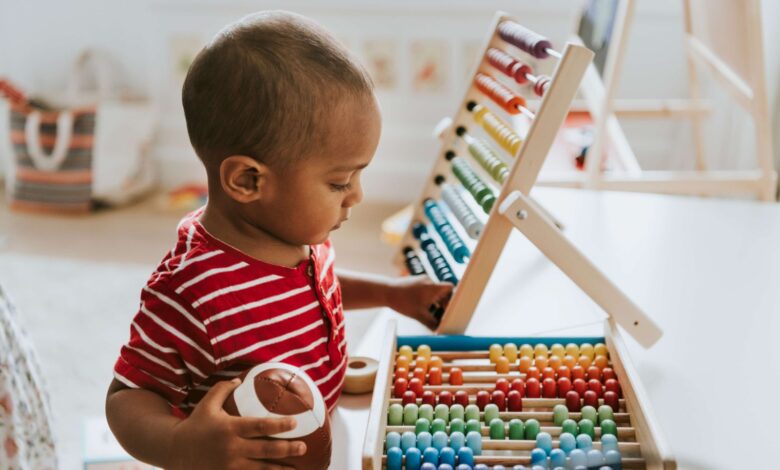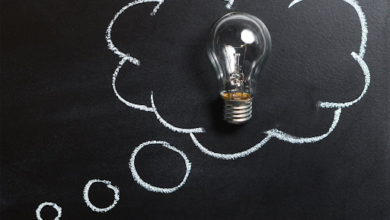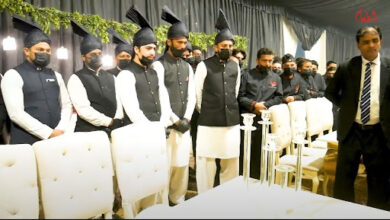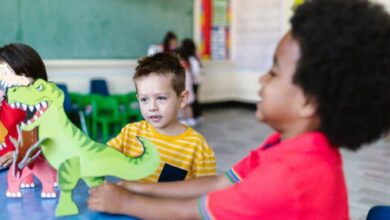The Benefits of Montessori Toys for Babies

Early childhood development is crucial, and providing the right environment and tools can significantly impact a child’s growth. One effective way to support this development is through the use of Montessori toys for babies. These toys are designed to foster independence, sensory exploration, and cognitive development from a very young age. In this article, we will explore the unique benefits of Montessori toys for babies and how they contribute to overall child development.
What Are Montessori Toys?
Montessori toys are based on the educational principles developed by Dr. Maria Montessori, which emphasize hands-on learning, independence, and respect for a child’s natural development. These toys are typically made from natural materials like wood, metal, and fabric, and are designed to be simple yet engaging, encouraging children to explore and learn through play.
Key Benefits of Montessori Toys for Babies
1. Promotes Sensory Development
Montessori toys often incorporate various textures, shapes, and colors to stimulate a baby’s senses. Sensory development is crucial in the first few years of life as it helps babies understand and process the world around them. For example, a soft fabric book or a wooden rattle can provide different tactile experiences that are both engaging and soothing.
2. Encourages Fine Motor Skills
From the age of a few months, babies start to develop fine motor skills by grasping, holding, and manipulating objects. Montessori toys like grasping beads, stacking rings, and interlocking discs are designed to enhance these skills. These activities improve hand-eye coordination and dexterity, laying the foundation for more complex tasks like writing and drawing.
3. Supports Cognitive Development
Montessori toys are crafted to engage a baby’s mind and encourage cognitive development. Simple puzzles, shape sorters, and nesting toys help babies learn about spatial relationships, cause and effect, and problem-solving. These toys challenge babies to think critically and explore different solutions, promoting brain development.
4. Fosters Independence
A core principle of Montessori education is fostering independence from an early age. Montessori toys are designed to be safe and accessible for babies, allowing them to explore and play independently. This autonomy helps build self-confidence and encourages babies to take initiative in their learning.
5. Encourages Exploration and Curiosity
Montessori toys are designed to be open-ended, meaning there are no specific rules or limitations on how to play with them. This encourages babies to use their imagination and curiosity to explore different ways of interacting with the toys. Such exploration is critical for cognitive and emotional development.
Examples of Montessori Toys for Babies
To better understand the impact of Montessori toys, here are some examples that are particularly beneficial for babies:
- Wooden Rattles: Help babies develop their grasping reflex and hand-eye coordination. The natural materials are safe for mouthing and provide sensory feedback.
- Soft Fabric Books: Engage babies’ senses and introduce them to the concept of reading. These books often include different textures and bright colors to capture a baby’s interest.
- Stacking Rings: Aid in developing fine motor skills and hand-eye coordination as babies learn to stack the rings in order.
- Shape Sorters: Encourage problem-solving and cognitive development as babies figure out how to fit different shapes into corresponding holes.
- Nesting Cups: Teach spatial relationships and cause and effect, allowing babies to explore how different sizes fit together.
Creating a Montessori-Friendly Environment at Home
To maximize the benefits of Montessori toys, create a Montessori-friendly environment at home:
- Organize Play Spaces: Keep toys within easy reach of your baby to encourage independent play. Use low shelves or baskets to organize toys and make them accessible.
- Choose Natural Materials: Opt for toys made from natural, non-toxic materials like wood and fabric. These materials are safe for babies and provide varied sensory experiences.
- Rotate Toys Regularly: To keep your baby engaged, rotate the selection of toys every few weeks. This prevents overstimulation and maintains interest.
- Encourage Safe Exploration: Ensure the play area is safe and free from hazards, allowing your baby to explore and play without constant supervision.
Conclusion
Montessori toys offer numerous benefits for babies, supporting their sensory, motor, cognitive, and emotional development. By choosing the right Montessori toys and creating a supportive environment, you can help your baby develop essential skills and foster a love for learning from an early age.For a wide selection of Montessori toys tailored to the needs of babies, visit Project Montessori and discover the perfect toys to enhance your child’s development.




